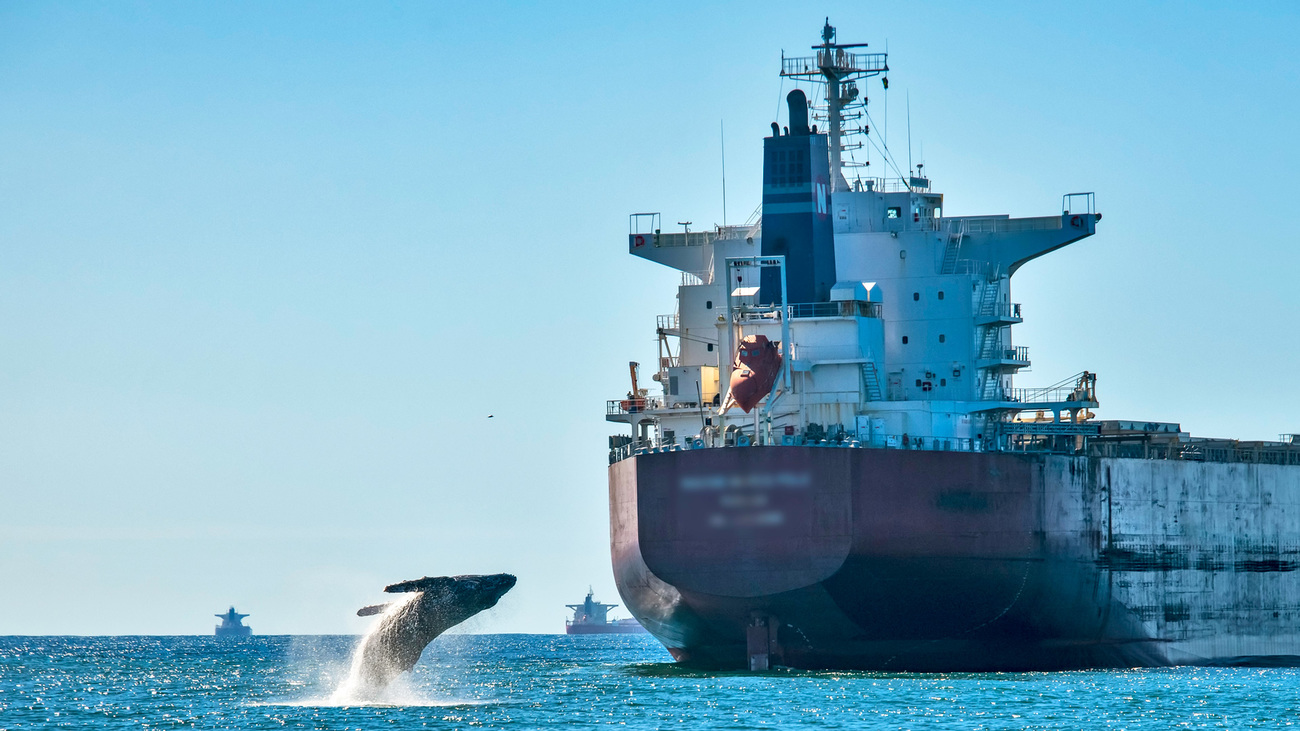Ocean Noise Reduction - Global
Saving marine life could be as easy as turning down the volumeEU fails to reduce ocean underwater noise while solutions already exist
EU fails to reduce ocean underwater noise while solutions already exist

Brussels, 5 February 2025 - On 4 February, the European Commission published an assessment of Member States’ progress under the Marine Strategy Framework Directive (MSFD). This directive, adopted in 2008, requires Member States to achieve 'good environmental status' (GES) in their marine waters by 2020 to protect the marine ecosystem and biodiversity.
The Commission highlights that some progress has been made towards GES for some forms of pollution, such as marine litter, but that significant gaps remain. Urgent action is needed to address other pollutants including underwater noise. This is in line with the findings of a report published earlier this week by the European Maritime Safety Agency (EMSA) and the European Environment Agency (EEA). The report points out that mitigation measures could reduce underwater noise pollution by up to 70% between 2030 and 2050.
In European waters, shipping is the major source of underwater noise pollution, and its impacts are widespread. The continuous noise drowns out the natural sounds of the ocean. Noise-sensitive marine life such as whales, dolphins, seals, and many fish species are affected as they rely on sound for their survival. These animals use it to communicate with one another, navigate, find mates and prey, and avoid predators. Both the number of ships and their speeds are increasing dramatically in our waters, contributing to global warming and to underwater noise pollution. Globally, more than half of all underwater noise is produced by the commercial shipping sector.
“Sadly, Member States did not achieve a good environmental status by 2020 in EU marine waters. The Commission’s assessment underscores the need for greater ambition and immediate action to achieve the MSFD objectives,” said Ilaria Di Silvestre, Director of Policy and Advocacy, Europe, at IFAW. “A massive 97% of the EU's sea area failed to meet good environmental status due to continuous underwater noise. While Member States’ measures to reduce underwater noise have improved, they are still focused too much on gathering knowledge about an issue that is already well-known. That is why IFAW proposes Blue Speeds as a solution.”
Almost a quarter of a million citizens and several shipping companies and ports support the Blue Speeds approach. Modest ship speed reductions of around 10% on average could reduce underwater noise pollution by 40% and shipping greenhouse gas emissions by 13%. Slowing ship speeds also results in co-benefits for biodiversity, such as halving the risk of collisions with whales, and for humans by reducing air pollution. Blue Speeds would also result in significant economic and environmental gains for the maritime industry and society. Depending on fuel prices, the total benefits of Blue Speeds in Europe are estimated to be between EUR 3.4 billion and 4.5 billion per year.
Di Silvestre added: “The European Oceans Pact – the European Commission’s upcoming strategy for ocean governance across all sectors – would be an opportunity to improve implementation and enforcement of the MSFD. It should include a clear commitment to introducing legally binding measures to achieve the good environmental status of the ocean.“
Related content
Our work can’t get done without you. Please give what you can to help animals thrive.